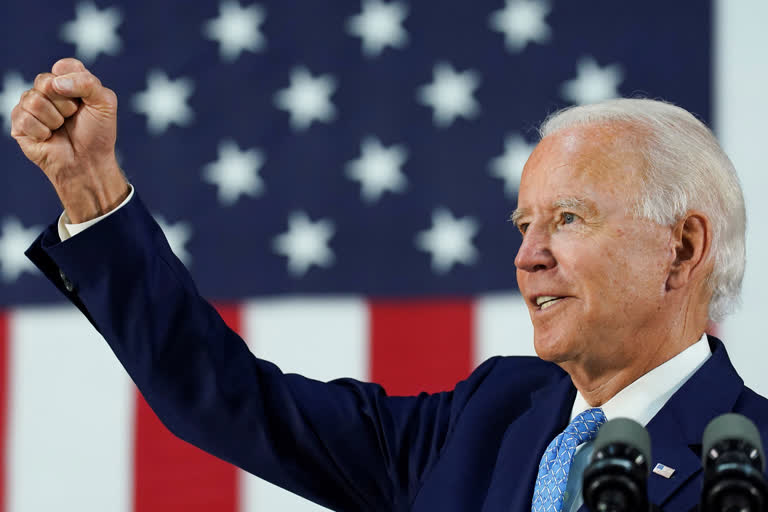Washington: The Biden administration says it’s ready to join talks with Iran and world powers to discuss a return to the 2015 nuclear deal, in a sharp repudiation of former President Donald Trump’s “maximum pressure campaign” that sought to isolate the Islamic Republic.
The administration also took two steps at the United Nations aimed at restoring policy to what it was before Trump withdrew from the deal in 2018. The combined actions were immediately criticized by Iran hawks and are likely to draw concern from Israel and Gulf Arab states.
In addition to signalling Thursday a willingness to talk with Iran, the administration also reversed Trump’s determination that all U.N. sanctions against Iran had been restored. And, it eased stringent restrictions on the domestic travel of Iranian diplomats posted to the United Nations.
The State Department announced the moves following discussions between Secretary of State Antony Blinken and his British, French and German counterparts, and as Biden prepares to participate, albeit virtually, in his first major international events with world leaders.
The announcement came a day before Biden is to speak to leaders of the Group of Seven industrialized democracies and later in the day address the annual Munich Security Conference. At both, Biden is expected to discuss his commitment to multilateral diplomacy and his desire to undo the damage that Trump’s positions may have caused over the previous four years.
Read:|Iran: US must lift sanctions before it lives up to nuke deal
In a statement, State Department spokesman Ned Price said the U.S. would accept an invitation from the European Union to attend a meeting of the participants — the five permanent members of the U.N. Security Council and Germany, along with Iran — in the original nuclear agreement.
“The United States would accept an invitation from the European Union High Representative to attend a meeting of the P5+1 and Iran to discuss a diplomatic way forward on Iran’s nuclear program,” he said. The U.S. has not participated in a meeting of those participants since Trump withdrew from the deal and began steadily ramping up sanctions on Iran.
Such an invitation has not yet been issued but one is expected shortly, following Blinken’s talks with the British, French and German foreign ministers.
Meanwhile, at the United Nations, the administration notified the Security Council that it had withdrawn Trump’s September 2020 invocation of the so-called “snapback” mechanism under which it maintained that all U.N sanctions against Iran had been re-imposed. Those sanctions included a conventional arms embargo against Iran that had been set to expire.
Trump’s determination had been vigorously disputed by nearly all other U.N. members and had left the U.S. isolated at the world body. Thus, the reversal is unlikely to have any immediate practical effect other than to bring the U.S. back into line with the position of the vast majority of U.N. members, including some of its closest allies.
Acting U.S. Ambassador to the United Nations Richard Mills sent a letter to the Security Council saying the United States “hereby withdraws” three letters from the Trump administration that culminated in its Sept. 19 announcement that the United States had re-imposed U.N. sanctions on Tehran due to it’s “significant non-performance” with its obligations.
Trump’s move had been ignored by the rest of the Security Council and the world, and the overwhelming majority of members in the 15-nation council had called the action illegal because the U.S. was no longer a member of the nuclear deal.
At the same time, officials said the administration has eased extremely strict limits on the travel of Iranian diplomats accredited to the United Nations. The Trump administration had imposed the severe restrictions, which essentially confined them to their U.N. mission and the U.N. headquarters building in New York.
